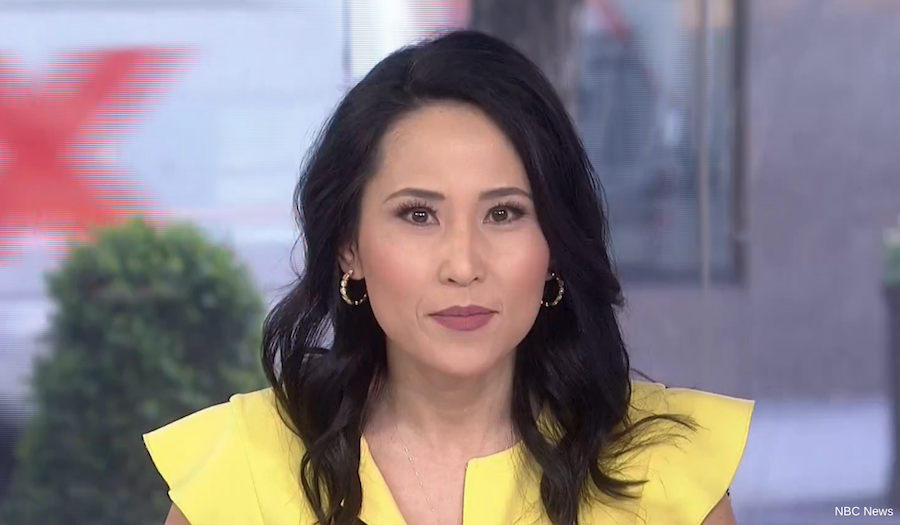Conscious Consumerism: What We Should Be Buying During the COVID-19 Pandemic

How to shop? What to buy? Is it safe to order in? These are the questions we find ourselves asking during this unsettling time of pandemic. To help us navigate the challenging new landscape of grocery shopping, we turned to NBC News’ Investigative and Consumer Correspondent Vicky Nguyen, who helps explain consciously consuming in the age of COVID-19.
1. Where can we still shop safely as social distancing continues?
Health experts say ordering groceries through a delivery service is still considered the safest way to get essential items during this “stay at home” period. Instacart, Costco, Sam’s Club, Amazon Fresh or Amazon Pantry, FreshDirect, and Peapod are among the largest grocery delivery services.
But if you are having trouble getting a window scheduled or getting orders filled because of the overwhelming demand, or if you live in an area where delivery services don’t exist, take precautions. Check for curbside pick-up as an option with big chains like Walmart and Target, which allows you to shop online, and then pick up your goods without having to go into the store.
Also call independent grocery stores near you; some have adapted and are now offering delivery and curbside pick-up. Some farmer’s markets are still open and they’re a great option for fresh fruits and vegetables. If you have a big family, consider looking up restaurant wholesale grocers. They are still reliably delivering with short wait times, but you may have to buy in bulk.
If you must make a trip, some stores are offering seniors-only hours and are beginning to limit the number of customers allowed inside to practice safe distancing. They’re also making certain aisles one way by adding arrows to the floor. If you do have to make a run, remember to cover your face with a mask, bandanna, or scarf.
2. What should we be ordering?
Order a 2-week supply of what you need. It allows others to get what they need as the supply chain issues are sorted out and stores try to get high-demand items back in stock. Before you order, review your pantry. You may not need as much as you think. Then consider how many people you need to feed and what nutritious shelf-stable items everyone enjoys. It helps to plan out a week’s worth of meals if you have time. Planning ahead can help reduce waste, too.
Buy pastas, rice, lentils or quinoa, plus canned goods like tuna and beans, and jarred sauces. Meat that can be frozen, like ground turkey or steaks, can help round out meals. Tofu is a great and versatile vegetarian protein. Tortillas last a long time in the fridge and can be used for burritos, wraps, and quesadillas. You don’t want to buy a ton of snacks, but it’s ok to have some treats in the house, especially if you have children, to break up the monotony of staying home.
3. Is this the time to be ordering non-essential items?
To reduce the demand on delivery drivers, try not to order extra items you don’t need right now. Many workers are already dealing with a spike in demand for necessary goods. And if possible, tip your take out and delivery staff who are among the frontline workers keeping things running for the rest of us. Remember, this isn’t going to last forever, so if that make-up or clothing can wait, consider hitting pause on your non-essential retail.
4. Is it safe to order food for delivery (even though we are helping local businesses)?
Yes. The FDA says right now there’s no evidence of food or food packaging being associated with transmission of COVID-19. But just like any virus, it is possible that COVID-19 can survive on surfaces or objects. While the risk is very low, you should always wash your hands after handling food packaging, use utensils to move the food onto a plate, and wash your hands before you eat. And opt for no contact delivery, where the order is left outside your door, to minimize face to face contact with others right now.
5. How can we avoid Coronavirus scams?
Currently, there is no cure for COVID-19. Beware of any product claiming to be a miracle cure or offering results that you can’t verify on multiple credible news or medical sites. The same goes for anyone claiming to get you an advance on your stimulus funds or unemployment benefits. Never ever give out your personal details to anyone who calls, emails or texts you that you’re not expecting. No government or health agency will initiate a call or email to ask for your social security number, bank information or credit card information.
Be on the lookout for emails and social media posts from friends too. Sometimes well-intentioned people share misinformation because it sounds credible and they want to be helpful. Before you share a link or forward an email, always check the source of the information and do an internet search to see if it has been reported anywhere else.
And always remember, when heading out to shop, the the CDC recommends to wear face masks “to slow the spread of the virus and help people who may have the virus and do not know it from transmitting it to others.”
Watch more of Vicky’s reporting on TODAY and NBC Nightly News with Lester Holt.
This Q&A was featured in the April 12th edition of The Sunday Paper. The Sunday Paper inspires hearts and minds to rise above the noise. To get The Sunday Paper delivered to your inbox each Sunday morning for free, click here to subscribe.


